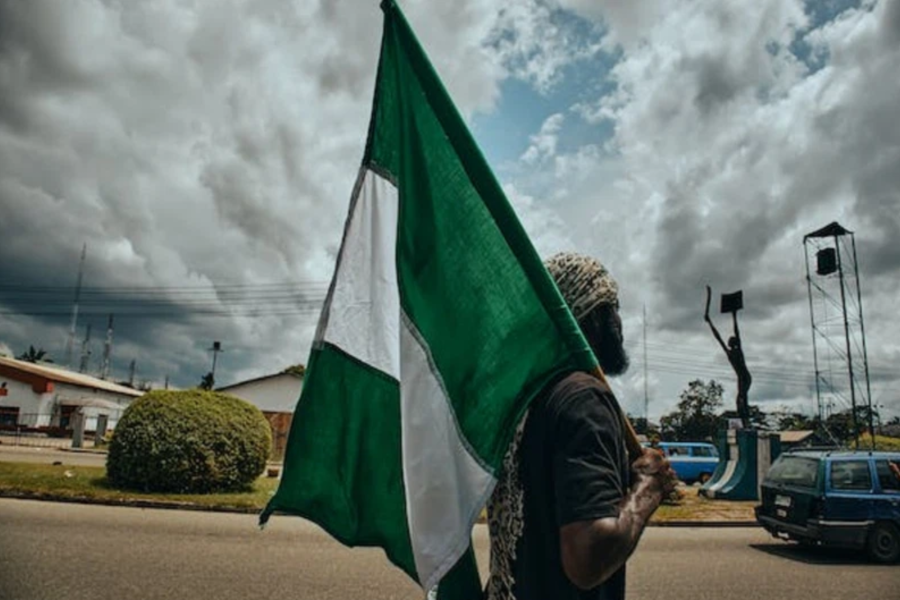
Nigeria clashes displaces tens of thousands in central region
At least 80,000 people have been displaced in three months of inter-communal violence in a north-central Nigerian state, a local official said, as the army reinforced security to end the clashes. ALSO READ: Civilian plane crash in war-torn Sudan leaves nine dead Since May, Plateau State has seen a surge of attacks among mostly Muslim […]

At least 80,000 people have been displaced in three months of inter-communal violence in a north-central Nigerian state, a local official said, as the army reinforced security to end the clashes.
ALSO READ: Civilian plane crash in war-torn Sudan leaves nine dead
Since May, Plateau State has seen a surge of attacks among mostly Muslim nomadic herders and Christian farming communities in violence the local state government says has left around 300 people dead.
ALSO READ: Nigeria’s army reinforces security in troubled central state
Nigeria’s military chief of staff, Major-General Taoreed Lagbaja, visited Mangu, in Plateau State, on Saturday 22 July 2023 to mark the start of special operations to “stamp out” the crisis.
The clashes are just one of the major security challenges facing new President Bola Ahmed Tinubu in Nigeria, where armed forces also battle jihadists, heavily armed bandit gangs and separatist tensions.
ALSO READ: Blasphemy leaves one muslim dead in northern Nigeria
Mangu district has been one of the epicentres of the recent violence, with villages ransacked and farmland destroyed. “There is an estimate of 80,000 internally displaced persons within 11 various camps in the local government area,” said Markus Artu, a top official in the Mangu district.
About 18,000 of the displaced were being sheltered in one of the camps situated at a primary school in Mangu. One of the camp coordinators, Yamput Daniel, gave AFP a similar estimate.
ALSO READ: Attack in Nigeria kills 16, more injured
STATE EMERGENCY RESPONSE AGENCY REPORT IN NIGERIA
State emergency response agency officials have delivered aid, but they have yet to give their official report on the number of displaced in the crisis. The local cattle herders’ association said some of their communities have also been displaced by attacks.
At the school, displaced victims were packed into classrooms, some dilapidated and with broken roofs, surviving on meagre supplies and maise donations from local churches.
ALSO READ: Nigeria’s intercommunal attacks kill 20 in Central region
“The crisis has rendered us homeless, our farmland has been destroyed, and we are left to manage our lives here in this primary school,” said Grace Emmanuel, 70, one of the displaced. “It has not been easy; we have no food to eat, we fetch water from the well to drink, and at times the water isn’t enough for thousands of us here.”
REGIONAL COMMANDER RELOCATES HEADQUARTERS TEMPORARILY
The regional commander of Plateau’s Operation Safe Haven campaign has relocated its headquarters temporarily to Mangu and deployed an extra 300 troops to the district with armoured vehicles.
ALSO READ: 13 killed in Nigeria inter-communal clashes
“Work with the communities. You are the people’s army. When they make distress calls, you must respond as soon as possible,” army chief of Staff General Lagbaja told troops. Plateau sits on the dividing line between Nigeria’s mostly Muslim north and the predominantly Christian south and has for years been a flashpoint for tensions.
WHAT TRIGGERED RECENT NIGERIA ATTACKS?
It was unclear what triggered the most recent flareup of attacks in Plateau. Tensions between herders and farmers over land and resources often spiral into tit-for-tat village raids by armed gangs who kidnap, loot and kill.
ALSO READ: Kidnappings extreme in northeast Nigeria: sources report
“We are tired of being here, we appreciate the security coming, but it would be best if the government would deploy most of the security to the villages so that we can get back,” said Mary Ishaya, another displaced woman in Mangu district. “But we are left here, with our children, no food, no medicine and the children are not going to school.”